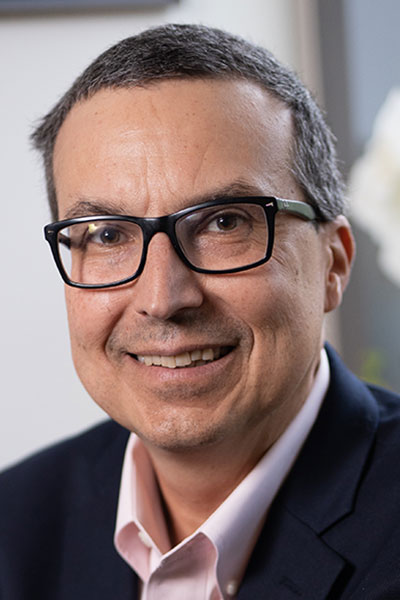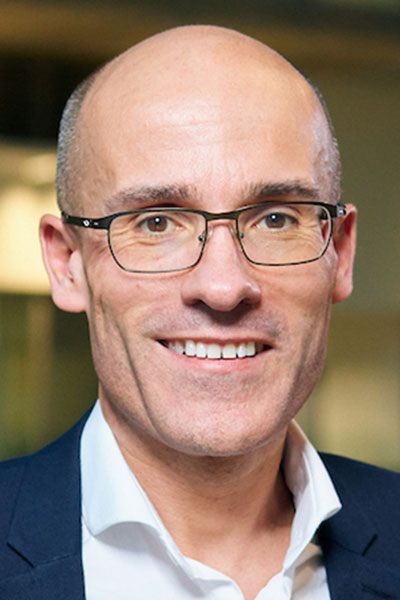Each year, SABCS® features a robust program with up-to-date research and hot topics in breast cancer and premalignant breast disease. This year’s Symposium will feature the cutting-edge science that attendees expect.


Here, Plenary Lecturer Charles Swanton, MB, PhD, FRS, FAACR, FRCP, and Presenter and Program Planning Committee Member Charles M. Perou, PhD, FAACR, talk about the value of the Symposium and why you don’t want to miss this year’s meeting.
Dr. Swanton’s lecture, Breast Cancer Evolution, Immune Evasion and Metastasis Driven by Chromosomal Instability, will be 11:20–11:50 a.m. CT Thursday, December 7 in Hall 1. Dr. Perou will be presenting Are We Sequencing Too Late? during Translational Research Controversies, 1:30–2:30 p.m. CT Friday, December 8 in the Stars at Night Ballroom 3-4.
Stay tuned for more highlights from session moderators, presenters, and program committee members along with ongoing news, updates, and important information on the 2023 SABCS®.
Why is attendance at SABCS® valuable for those in the breast cancer field?
Dr. Swanton: SABCS® is valuable as it serves as an unparalleled platform for both the dissemination of cutting-edge research as well as staying updated on advancements in the field of breast cancer. The prestigious Symposium actively fosters collaborations between leading clinicians and researchers from various disciplines across the globe. The event facilitates the exchange of insights and breakthroughs in a collaborative environment that drives progress toward the diagnosis, treatment, and management of breast cancer.
Dr. Perou: I always encourage people to come to the meeting. It’s one of my favorite meetings of the year in large part because it’s all focused on breast cancer. Also, the breadth of the presentations is remarkable. And it’s a place for the latest results from clinical trials. [In the Controversies sessions,] it’s great to have open discussions about topics that are not cut and dried. There are many companion diagnostics or new drugs with possible new indications where it’s not a slam dunk on exactly how to use them, when to use them, or why to use them. I think it helps the medical professionals in the audience to hear these open discussions from experts in the field, some of whom are developing these as we speak.
What topics are you looking forward to diving into more deeply?
Dr. Swanton: I’m looking forward to finding out more about drug resistance, immune therapy response and resistance mechanisms, and mechanisms of action of antibody-drug conjugates.
Dr. Perou: There is certainly going to be some interesting data presented on antibody-drug conjugates. Those are a very exciting new class of drugs that are approved and growing in their uses. Of course, always interesting work will also be presented on possible companion diagnostics and biomarkers. And there will be a lot of interesting presentations on cell-free tumor DNA and other blood-based biomarkers and how to use them, beyond just the prognostic capabilities. They’re growing in their use as a measure of minimal residual disease, and there are data being presented that they could be predictive; they can tell you what to give the patient. That would be very exciting, because the more these minimally invasive techniques can give us, the easier it is for the patients.
What are you anticipating learning more about that is outside of your field of specialty?
Dr. Swanton: I’m anticipating learning more about somatic evolution of normal breast tissue, breast cancer prevention, and early detection strategies.
What other recommendations do you have for attendees?
Dr. Perou: I want to encourage basic researchers to come to the meeting and learn about the clinical research and present their basic research data, because it often impacts clinical research in ways the basic researchers don’t realize. And the Symposium certainly will inform basic researchers about some of the unmet needs in the clinic.

